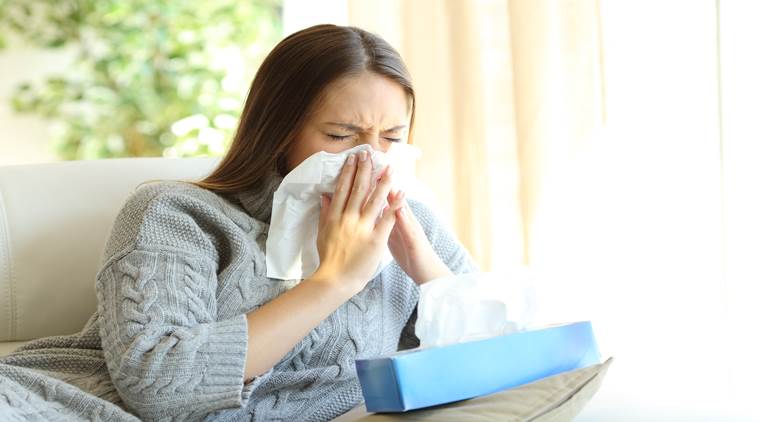Symptoms include sneezing, runny and stuffy nose, itchy eyes, nose and throat, all of which could be mistaken for common cold.

If you are generally susceptible to allergies, you may find them to be more aggressive this winter season; as if the seasonal pollution and the plummeting temperatures were not enough. If you have been wondering why your allergies tend to flare up during these months, you have molds and/or dust mites to blame. And before you begin your fight, here’s everything there is to know about winter allergies.
What are they?
Winter allergies are just seasonal allergies that afflict some people. When the weather is cold outside, you tend to spend more time indoors, thereby exposing yourself to indoor allergens. These allergens are what cause you to sneeze incessantly. Some common indoor allergens that trigger these allergies are: dust particles in the air, dust mites (which are tiny insects belonging to the spider family), mold, and pet dander (the material shed from the body of an animal that has fur, feathers or hair).
Here are some health benefits of cold weather
The symptoms
Typically, the symptoms of winter allergies include sneezing, runny and stuffy nose, itchy eyes, nose and throat, all of which can be mistaken for common cold. It should be noted that winter allergies and common cold have different sources. The cold is likely to leave the body once the medicines have run their course. But the allergies enter the respiratory tract, and stay for as long as you are exposed to the allergens.
How to steer clear
If your allergies are severe, consult with your doctor who might prescribe antihistamines. These are over-the-counter allergy medications that stop the allergy symptoms. But, if you want to minimise the indoor allergen exposure altogether, you could start with cleaning the carpets in your house, or even removing them, since they could have animal dander (if you have a pet), mold and/or dust mites in them.
What makes rasam ideal for cold, flu and weight loss
If you have a pet, bathe them weekly. Keep them clean, so dander and other allergens are removed from their body. If you are particularly allergic, change your clothes and bathe before bed every time you interact with your pet.
Keep you bed sheets and blankets clean. Expose them to the sun, wash them in hot water so as to keep the dust mites away. Keep your pillows and pillow cases clean, too.
Always keep an eye on wet surfaces — especially in the bathrooms and kitchen — as these could be breeding grounds for mold. Keep wiping the surface.
Source: Read Full Article





